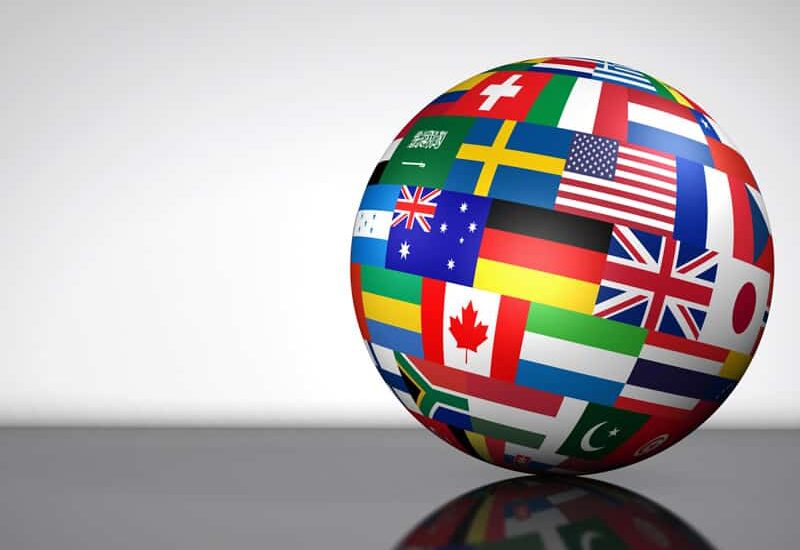
The tenth package of EU-Russia sanctions
- 21. March 2023
- Posted by: Marie-Theres Waldleben
- Categories: International Trade Law, Shipping and Transport Law

1. 10th EU sanctions package against Russia – far-reaching changes in the EU sanctions law
Symbolically, on the first anniversary of the war of aggression launched by Russia over and above the annexation of Crimea and accompanied by further violations of Ukraine’s territorial sovereignty, another package of EU economic sanctions against Russia has entered into force. This tenth package of sanctions is not limited to pure symbolic politics, but once again expands the existing sanctions in a way that is so comprehensive that only selected core areas will be presented here.
The focus remains on increasingly restricting the military and technological capabilities of Russian warfare.
Of note are expansions of both trade-related and individual sanctions, which have led to changes in the respective rules under existing EU Regulations 833/2014 and 269/2014.
2- Trade-related sanctions
Within the framework of the comprehensive regulations on further trade-related sanctions, export restrictions intended to affect strategically important industrial enterprises need to be outlined. For example, exports of rare earths are now banned. Semi-finished or finished electronic products are also considered. For example, the regulations prohibit the export of electronic integrated circuits and thermal imaging cameras. Transitional arrangements exist for the performance of contracts agreed before February 26, 2023. Also, and with the aim of limiting Russia’s ability to generate significant revenue from the export of certain goods, the list of goods to be considered under the import ban under Article 3i) of EU Regulation 833/2014 has been expanded. In particular, vaseline and carbon-based waxes, asphalt, bitumen and carbon as well as synthetic rubber are to be named, the corresponding CN codes are listed in Annex XXI of EU Regulation 833/2014. For contracts agreed before February 26, 2023, grandfather rules will apply.
3. Avoidance of circumvention
Noteworthy are extensions of the sanction provisions to avoid circumventing measures. For example, the prohibition rule of Article 2 of EU Regulation 833/2014 now also includes transits of qualifying goods via Russia. In addition to the general ban on the transit of firearms under EU Regulation 258/2012 (Firearms Regulation) through Russia (Article 2aa (1a)), the transit of listed dual-use goods through Russia is subject to Article 2 (1a), (3a), (4a) of EU Regulation 833/2014, as amended in this respect. There is a licensing requirement for certain exceptions provided for within narrow limits. It should be emphasized that, in addition, there is a general prohibition of circumventing measures. Circumvention is a core element of limited effectiveness of the sanctions regulations and thus deserves special attention from state authorities. For example, if raw materials originating in Russia are first exported to a third country and then imported from there into the European Union under false pretenses of origin, profits from the sale of the raw material used within the European Union nevertheless accrue to the Russian economy and the oligarchic structure that characterizes it. While the extraterritorial effect of U.S. sanctions regimes is likely to have some deterrent effect on entering into circumventing transactions, it should be noted, first, that the European Union sanctions regimes are not intended to have a comparable extraterritorial effect and, second, that global trade in raw materials in particular raises questions regarding the determinability of origin and respective challenges in monitoring compliance with sanctions regimes. It should be noted that it is still possible for Russia to export goods to third countries using all possible modes of transport. Crucial to the effectiveness of goods-related trade restrictions is thus the question of the manageability of effective containment of circumventing transactions, since otherwise there is a risk that goods will merely be traded via other transport routes and the goods-related sanctions will not only come to nothing, but also drive price increases that can lead to undesirable shifts in wealth, i.e. in particular profits of traders in third countries who are involved in concealing the origin of the goods, and Russian exporters.
Comparably limited is the possibility to control and prevent the transfer of banned of export goods via third countries. Article 12 of EU Regulation 833/2014 provides for a prohibition on knowingly and intentionally engaging in activities the object or effect of which is to circumvent. Criminal liability thus presupposes knowledge and intent. Especially in the case of disguised indications of origin, it is a considerable hurdle to prove knowledge and intent.
4. Spotlight on some individual sanctions
As part of the tenth EU sanctions package, the EU has introduced some notable innovations in the area of individual sanctions. Among the 87 additional individuals and 34 organizations to which the individual sanctions apply are individuals who are not Russian citizens, namely Iranians associated with the delivery of combat drones. Previously, since Dec. 12, 2022, only the Islamic Revolutionary Guards as an organization and the Oje Parvaz Mado Nafar Company (Mado) and Paravar Pars Company organizations associated with the production and development of such combat drones, and since Jan. 30, 2023, the Iran Aircraft Manufacturing Industries Corporation, were listed as organizations based outside Russian and Ukrainian territories. As part of the tenth EU sanctions package, another Dubai-based organization is now listed, SUN Ship Management (D) Ltd. has been prominently known as ship manager for Sovcomflot. It can be assumed that new shipmanagers will be found for the respective ships, certainly it is advisable for EU stakeholders to follow further developments also in future sanctions packages to ensure compliance with sanctions regimes.
In addition to three other banks (Alfa-Bank, Rosbank, Tinkoff Bank), the 34 organizations , which are now subject to individual sanctions in accordance with the EU Council Implementing Regulation 2023/429 of February 25, 2023, include the Russian National Reinsurance Company JSC (RNRC). It is a Russian joint stock company controlled by the state and a subsidiary of the Bank of Russia. RNRC now plays a central role in insuring Russian-flagged ships, including Sovcomflot vessels.
Also listed as of February 25, 2023 is Atomflot, a company that maintains the Russian icebreaker fleet. This is intended in particular to hit Russia’s hydrocarbon strategy and seaborne trades to Asia.
Pursuant to Art. 2 of EU Regulation 269/2014, inclusion in the sanctions list results in the freezing of all funds or economic resources belonging to or owned by the listed person or entity; special reference should be made to the notification obligation pursuant to Art. 8, which was further differentiated within the framework of the 10 Sanctions Package by EU Council Implementing Regulation 2023/426 of February 25, 2023. The body responsible in Germany for receiving the notifications is the Federal Office of Economics and Export Control (BAFA). The reporting obligation is linked to a knowledge-dependent deadline of two weeks, within which it must be complied with. According to the also amended Article 6 b) of EU Regulation 269/2014, certain transactions from the past are also subject to the reporting obligation. At this point, a reference to the broad definition of the term “funds” according to Article 1 of EU Regulation 269/2014 should be recalled. Bills of lading, for example, fall under this definition, as well as certain guarantee or security forms. In the event that, for example, security was provided in favour of the Russian National Reinsurance Company JSC to satisfy a claim in the past, this results in the obligation to report this circumstance. The information obligations associated with the 10th Sanctions Package include detailed regulations, especially for banks with regard to securities transactions, which do not only concern future transactions.
5. Strengthening ship safety
The 10th EU Sanctions Package contains not only extensions of existing sanctions, but also certain adjustments and simplifications. The most decisive regulation for shipping and ship safety in this context is probably the introduction of Art. 5aa para. 3 h), according to which it is expressly permitted to provide pilotage services for ships in peaceful passage. The new version of Art. 12 d) has a clarifying character in this respect.
6. Focus on protection of critical infrastructure
The EU Implementing Regulation 2023/427 of the EU Council of 25 February 2023 establishes the protection of critical infrastructure – in this form – for the first time.
Under the new Article 5 o) of EU Regulation 833/2014, it is prohibited to allow Russian nationals and natural persons residing in Russia to hold positions in the governing bodies of the owners or operators of critical infrastructure, European critical infrastructure and critical facilities identified or designated as such under national law. The reference in the individual national laws may lead to questions of interpretation in the application of this prohibition standard as to which facility in each case has been “identified or designated” as part of critical infrastructure under national law. Therefore, as a general rule, when Russian nationals and Russian resident individuals hold executive positions, it is recommended that care be taken to determine whether the entity can be counted as part of the critical infrastructure.
Extended to organizations and facilities, Art. 5 p) can be understood as an extension of this general provision, according to which it is prohibited – with the exception of parts of liquefied natural gas facilities used for storage purposes – to provide gas storage capacities. Contracts already entered into must be terminated, otherwise – if it is shown that the provision of storage capacity is necessary to secure critical energy supply in the Union – the contracts are subject to approval.
7. Measures to de-invest from Russia
An additional exemption has been created with the recast of Art. 12 b) of EU Regulation 833/2014 in its limiting effect on the service prohibitions of Art. 5 n). The background is that it should be easier to de- invest from Russia. For rendering such services, it is imperative to observe the existing authorization requirement.
8. Conclusion
The EU sanctions against Russia are robust, unprecedented regulations that are now characterized by an intensive level of detail. It is welcome that the sanctions also explicitly state the prohibition of their circumvention. In the international trade of certain raw materials, whose origin is not easily verifiable, challenges are apparent with regard to the effective implementation of the sanctions’ regime.
Do you have further questions on these or other topics? Our experts will be happy to support you with solutions tailored to your individual needs.


